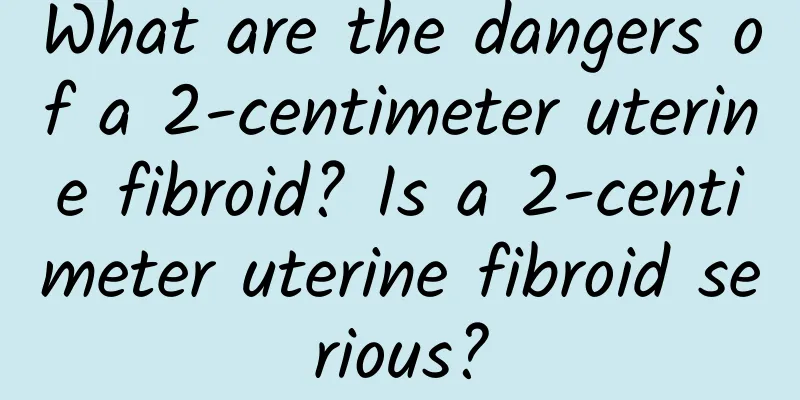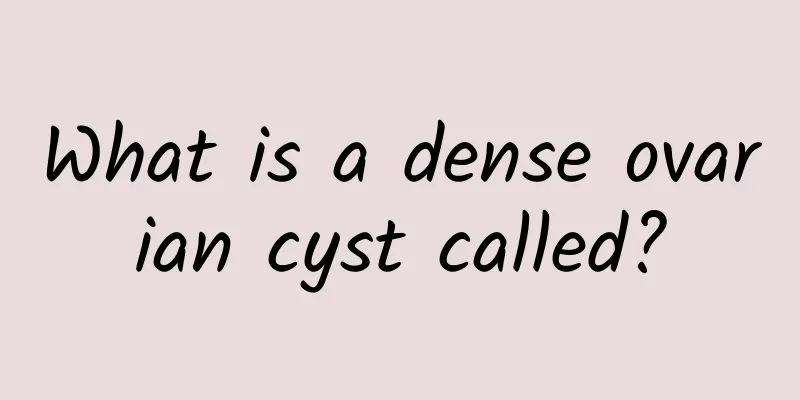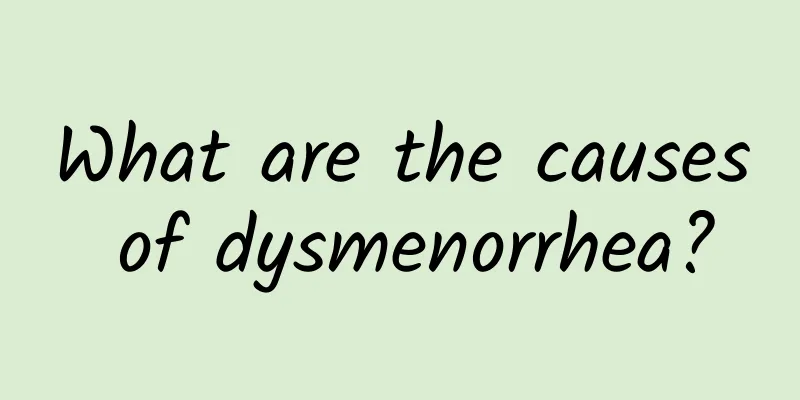What are the dangers of a 2-centimeter uterine fibroid? Is a 2-centimeter uterine fibroid serious?

|
What are the dangers of a 2-centimeter uterine fibroid? Uterine fibroids refer to benign tumors that occur in the inner wall or myometrium of a woman's uterus. Among them, a 2-centimeter uterine fibroid refers to a tumor that is two centimeters in size. For many women, the presence of uterine fibroids may cause some discomfort and distress. This article will explore the possible dangers of a 2-centimeter uterine fibroid and provide relevant scientific knowledge. Uterine fibroids of 2 cm may affect fertility in some cases. When uterine fibroids are located on the surface of the endometrium, they can easily cause irregularities in the endometrium, thus affecting the implantation and development of the embryo. Uterine fibroids may change the morphology of the uterine cavity, making it difficult for the embryo to implant smoothly, leading to an increased incidence of infertility or habitual miscarriage. Therefore, for women who want to get pregnant, uterine fibroids may become an important influencing factor. Uterine fibroids as small as 2 cm may cause abnormal and painful menstruation. The growth of uterine fibroids can disrupt the normal myometrium of the uterus, leading to heavy menstruation, irregular menstrual cycles, or prolonged menstruation. Sometimes, uterine fibroids can also increase the incidence of dysmenorrhea, making women feel more uncomfortable during menstruation. These abnormal menstrual symptoms can have a negative impact on a woman's quality of life and need to be diagnosed and treated promptly. Again, uterine fibroids of two centimeters may cause compression-related symptoms. When uterine fibroids grow larger, they may exert a certain degree of compression on nearby organs. For example, if the uterine fibroids are located near the cervix, it may cause urinary system symptoms such as difficulty urinating, frequent urination, and urgency. If the uterine fibroids compress the rectum, it may cause constipation or difficulty in defecation. These compression-related symptoms will cause inconvenience and pain to the patient and require active treatment. At this point, let's talk about the dangers of a two-centimeter uterine fibroid. Uterine fibroids are a common gynecological disease, which is benign in most cases, but still poses a certain threat to women's health. Although a two-centimeter uterine fibroid is small in size, it may still have a negative impact on fertility, menstrual cycle, menstrual pain, and compression-related symptoms. Therefore, it is crucial for women who are found to have uterine fibroids to diagnose and treat them early. A comprehensive strategy can be adopted for the treatment of uterine fibroids of 2 centimeters. Depending on the patient's specific situation and the severity of symptoms, the doctor may recommend observation, drug treatment or surgical resection. Drug treatment can control the growth of uterine fibroids and relieve related symptoms by regulating hormone levels. For some patients with severe symptoms or those who want to have children, surgical resection may be a better choice. Therefore, when uterine fibroids are discovered, it is very important to work closely with the doctor to choose a treatment method that suits your condition. Uterine fibroids as large as 2 cm may have a certain impact on women's fertility, menstrual regularity, and compression-related symptoms. Early diagnosis and treatment can help women reduce discomfort and avoid further complications. By working with their doctors, paying close attention to changes in the condition, and taking appropriate treatment measures, women can actively cope with the problems caused by uterine fibroids and maintain a healthy life. |
Recommend
How to treat missed periods
How to treat menstrual irregularities? Reduced me...
Irregular menstruation may be a sign of premature ovarian failure
Menstrual irregularity is a common symptom of end...
Are there any serious risks of curettage and abortion for women? Two major risks of curettage and abortion for women should be taken seriously
Curettage and abortion is the most common method ...
Hyperprolactinemia diagnostic process
The occurrence of hyperprolactinemia is closely r...
What are the tests for menopause?
What are the examinations for menopause? Menopaus...
How long after a miscarriage can I drink tea? What are the dangers of drinking tea after a miscarriage?
How long after a miscarriage can you drink tea? M...
How to treat premature ovarian failure
How to treat premature ovarian failure? Premature...
What are the dangers of threatened abortion?
What harm does threatened abortion bring? Pregnan...
What should I pay attention to when I have pelvic effusion?
What should we pay attention to in case of pelvic...
Can uterine fibroids cause cancer? Can sexual dysfunction lead to uterine fibroids?
Why do many people dare not hear about diseases l...
Nursing measures for acute pelvic peritonitis
In life, many women will suffer from pelvic perit...
What should pregnant women pay attention to when having uterine fibroids? What should pregnant women pay attention to when having uterine fibroids?
What should pregnant women pay attention to when ...
How to best treat patients with second-degree cervical erosion? 5 treatment methods for second-degree cervical erosion in women
In today's gynecological clinics, cervical er...
Congenital absence of vagina
What is the authoritative knowledge about congeni...
Abortion syndrome
The first step is to confirm the pregnancy. Accor...









